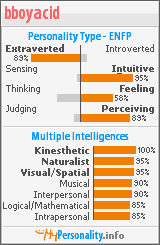Maturity
There are so many definitions to this: but is there a best definition? Many of which I'm listing are results of my futile rationalizing.
Is maturity attained when a person acquires the ability to discern? When a person recognizes the fine line between what's appropriate for the matter at hand and carries out the right action? A person of this sort is the common "grown up", and the most common definition to maturity. However, this way to define maturity is lacking in one sense: that a person never touches himself, never realizes himself, playing by societal rules, a conformist.
Is maturity attained when one recognizes that ways of the world, but does not blindly conform, instead, lives a mind of his own? Is maturity attained when one begins to have his own opinions of the world and act them out? This is the experienced person, the person who had gone through the shits of the world, who recognizes the atrocities of societies because he had been in the world and grew to understand it. An experienced skeptic, or believer, either way, a starkly immense contrast with an innocent one. But the concept of independence has a problem: no man is an island and our every conception and perception is shaped by authority and premises, our senses nonperfect, our theories shortcoming.
Is maturity the coming of age of a person, when a person finally understands the ways of the world because he had been through, ergo formulate conclusions based on reliable self-experience? The coming of age is when a person finally knows himself fully? This is one point I firmly believe in: that knowledge of oneself is the sine qua non of maturity. One must know his flaws, his strengths, his limits to find his place in the world, to understand his lack of understanding, to understand man better. However, the coming of age and self-realization and understanding, as reliable as it sounds, is shaky and somewhat unreliable. Giving the changing tendencies of the person himself and more, the world, one cannot find his rightful place just by self-knowledge. It's not that it's not a good measure, but an inadequate one. To me, there is more to life than this world also, even I deem this as something extremely essential in the lines of maturity.
Is maturity the end of ignorance? Does the light of maturity break when the blanket of willful ignorance diminish? Does a person become more mature when he open his eyes and take action on the world around him? Does he become more mature when he looks at others' problems instead of himself? It is true, because he starts to realize the simple truth that the world doesn't consist of him, a release from innocence. Maturity starts with the end of willful ignorance to the world. But is egoism a sign of immaturity? It is, to an extent, but only in the premises of innocence, when one doesn't know, or doesn't care to know about the outside world. An example here: a competitive businessman isn't immature because he is egoistic for his gain of something. However, a lover who makes life difficult for his other because "he likes it that way" is immature because he is willfully ignorant about his partner's opinions but only pays attention to his own bubble for the way he likes it to be. But this theory has a problem: it only takes to account willful ignorance. What about innocence? What about pure innocence? What about narrow-mindedness? Are they not signs of immaturity? Compare ignorance, innocent ignorance with a baby. Is he not immature?
Is maturity the ability to conduct oneself in a favorable, acceptable way? Is maturity all about being poised? Does a measure of a person's maturity come from his outward appearance and his actions? It is true in the argument that good behavior is a sign of a person's knowledge of the rules and standards of society, and he is, therefore, mature. Looking form another angle, in chinese, maturity is
成熟. "成" carries the definition of accomplishment, achievement, or transforming to, turning to. The definition of "熟" is to be riped, processed, skilled, experienced, practised, deeply. Do you realize that only one of this definitions has directly to do with outward appearance? Is a person mature because he brings himself across well? Or is it the inner changes in him which made him realize that? There is a MAJOR misconception correlating maturity with appearance, and it's apparent everywhere. There is a way I behave in school which brings me across as an immature person. I know that, and sometimes I did that on purpose. One of my friends actually checked my blog and told me the next day that he didn't expect that of me. "i didn't know you're someone who... thinks." Well I expect all those comments, that I'm like this, I'm like that. But don't you think it's a good way to carry on with this maturity gauge experiment? If you don't get me, nevermind. haha.
But to me the best measure of maturity is not from the outside. It's from the inside of a person, from knowing the ways of the world, it's from understanding that you don't understand, and making an attempt to have a mind of your own. It's also about being independent, not stubbornly independent, but taking to account interdependence. In the book: 7 habits of highly effective people, Steven Covey lists habit no. 7 under that of interdependence upon one another. Maturity, to me it's also about knowing your limitations, so you are wary of yourself, and in a larger context, the hoi polloi. I believe maturity, or, riping comes at a very different time for everyone. Some I know are mature at 15. Some, who THINK they are mature, aren't even there at 18. Of all, maturity is instigated by one's own mind, one's own attempt to understand the world and himself and the people around him. Because through these, a person will know how to survive in this world, know this world, and recognize a part of his place in this world, and also to help others in this world. Ultimately, it must be for progression.
To come to think of it, there are so many definitions. These are just some to make you think.
Labels: christian-bboy, voice



